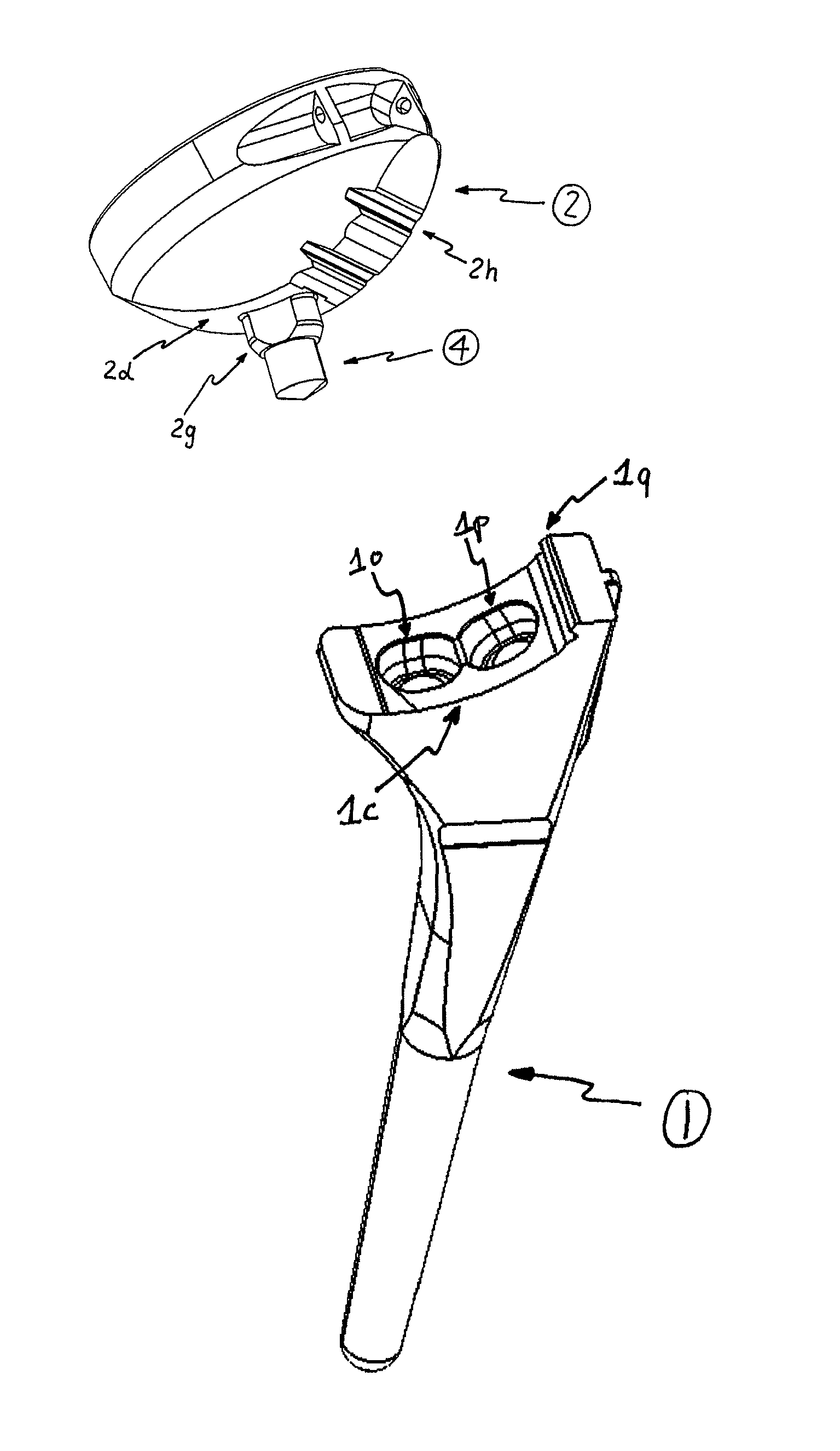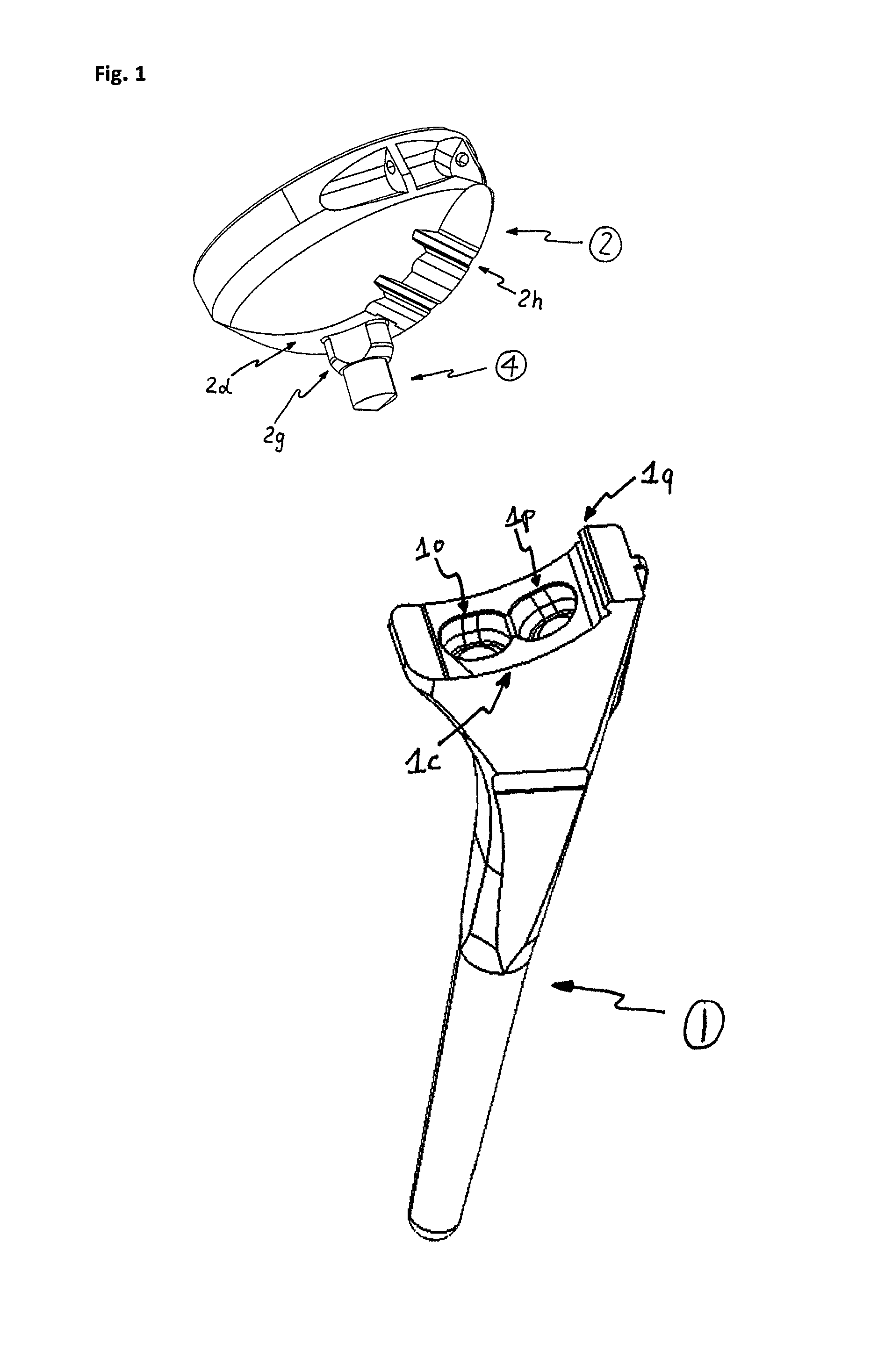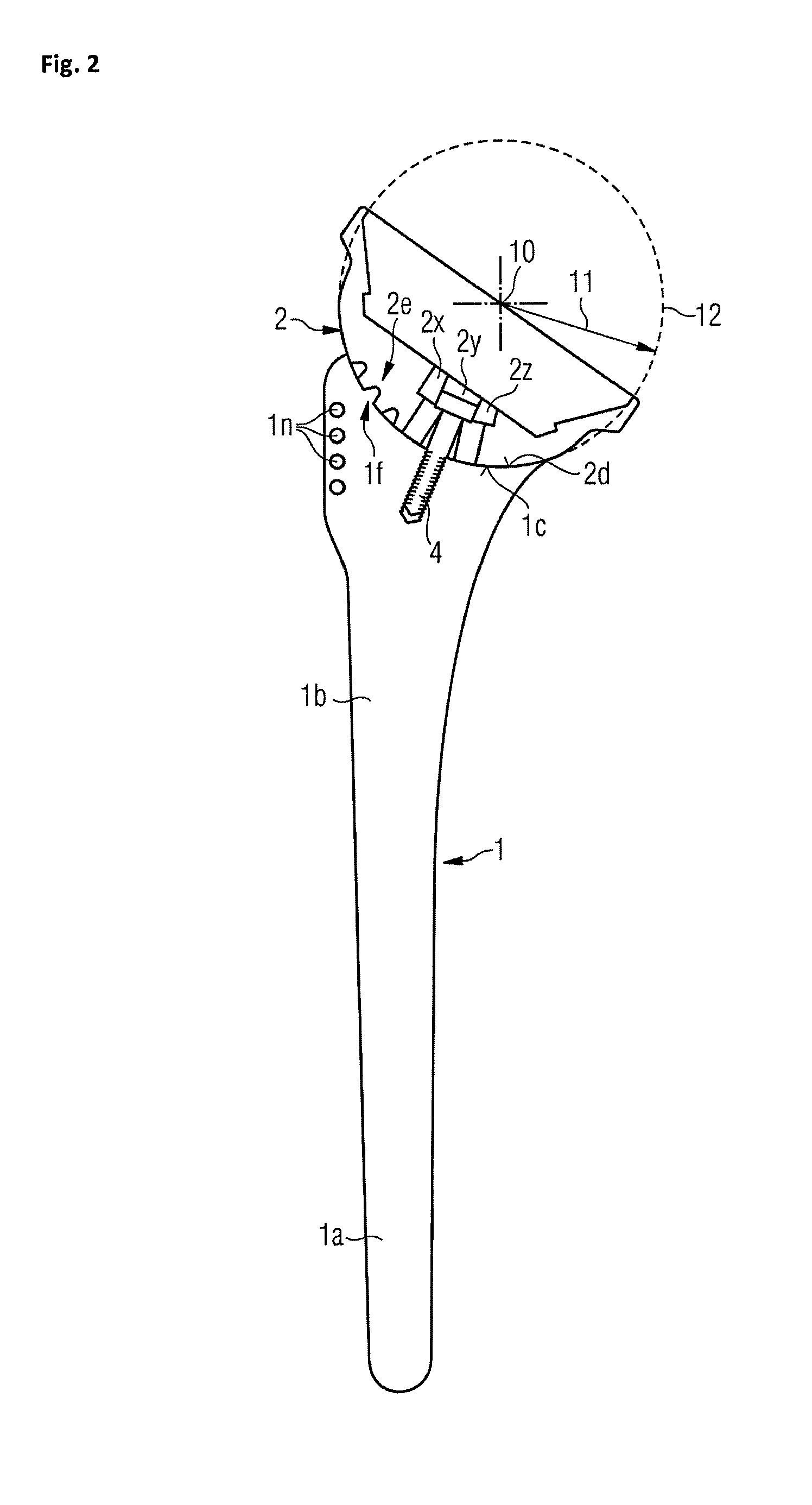Method of shoulder arthroplasty with adjustable angle of inclination
a shoulder arthroplasty and adjustable technology, applied in the field of modular shoulder arthroplasty system, to achieve the effect of widening
- Summary
- Abstract
- Description
- Claims
- Application Information
AI Technical Summary
Benefits of technology
Problems solved by technology
Method used
Image
Examples
first embodiment
[0048]FIG. 1 shows the humeral component of a shoulder prosthesis. It includes a stem module (1) and a joint adapter (2). The adapter support surface (2d) of joint adapter (2) interfaces with the stem support surface (1c) of stem module (1). Both have radial arc shaped sections. The radial arc shaped sections have sections of a cylinder surface and therefore only allow one kind of rotation around the cylinder axis. Rotation around other axis, specifically around axis perpendicular to the cylinder axis is not possible. The remaining degrees of freedom are rotation around a cylinder axis and there may be a translation parallel to the cylinder axis. A screw (4) through a preferably circular protrusion (2g) of the joint adapter (2) goes into one of the threaded holes (1o, 1p) defining alternate positions and therefore alternate inclination angles between the joint adapter (2) and the stem module (1). The screw (4) fixes the joint adapter to the stem module and locks the joint adapter ag...
second embodiment
[0053]FIGS. 5a and 5b show a joint adapter (2) mounted at different inclination angles to the stem module (1), using the respective hole (2z, 2x) in the joint adapter (2) for the screw (4).
[0054]FIG. 6 shows the definition of the inclination angle 13, also known as neck shaft angle. It is the angle between the longitudinal axis of the stem module (1), which is essentially the longitudinal axis of a bone (for example, humerus) into which the stem is inserted, and the center axis of the joint adapter (2, 6, 7). It may be in a range between 120 and 170 degrees and is preferably between 135 and 155 degrees. This inclination angle may be modified by positioning of the joint adapter (2, 6, 7) against the stem module (1).
[0055]FIG. 7 shows a side view of the stem module in detail. The stem may either be a monobloc configuration or consist of several parts. It has a cylindrical or tapered distal aspect (1a) developing into a larger, polygonal form (1b). The most proximal aspect of the mono...
PUM
 Login to View More
Login to View More Abstract
Description
Claims
Application Information
 Login to View More
Login to View More - R&D
- Intellectual Property
- Life Sciences
- Materials
- Tech Scout
- Unparalleled Data Quality
- Higher Quality Content
- 60% Fewer Hallucinations
Browse by: Latest US Patents, China's latest patents, Technical Efficacy Thesaurus, Application Domain, Technology Topic, Popular Technical Reports.
© 2025 PatSnap. All rights reserved.Legal|Privacy policy|Modern Slavery Act Transparency Statement|Sitemap|About US| Contact US: help@patsnap.com



